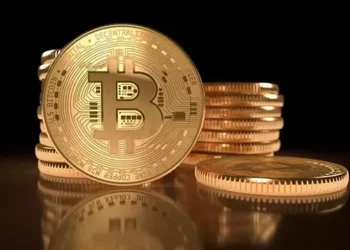Cryptocurrency has grown in prominence over the past decade, with digital assets like Bitcoin, Ethereum, and a host of altcoins becoming more integrated into mainstream finance. As the world’s largest cryptocurrency exchange by trading volume, Binance has been a key player in this evolution. However, many users, particularly in India, are left wondering whether they can legally and safely use Binance to trade digital assets. This article will explore the regulatory environment surrounding cryptocurrencies in India, the legal status of Binance in India, and what alternatives users have if they’re restricted from using Binance.
Understanding Binance and Its Role in the Cryptocurrency Ecosystem
Binance was founded in 2017 by Changpeng Zhao (commonly known as “CZ”) and has quickly grown to become the largest global cryptocurrency exchange in terms of daily trading volume. The platform offers a wide array of services beyond just buying and selling cryptocurrencies, such as futures trading, staking, savings, decentralized finance (DeFi) services, and more. Binance serves millions of users globally, offering access to hundreds of digital assets and trading pairs.
Binance is known for its low fees, advanced trading features, and strong security protocols. It has also launched Binance.US to serve the U.S. market and Binance Jersey for users in Europe. Despite its massive success, Binance has faced scrutiny from regulators in various countries due to its rapid growth and the complex regulatory environment surrounding cryptocurrencies.
The Indian Crypto Landscape: A Brief Overview
India, with its large population and rapidly growing digital economy, has emerged as one of the most important markets for cryptocurrencies. However, India’s stance on cryptocurrency has been far from clear-cut. Over the years, the Indian government and regulators have vacillated between welcoming and restricting cryptocurrencies.
In 2018, the Reserve Bank of India (RBI) imposed a banking ban on businesses and individuals dealing with cryptocurrencies. This move effectively restricted access to crypto exchanges and their services, causing a significant downturn in the market. However, in 2020, the Supreme Court of India overturned the RBI’s banking ban, citing the negative impact on innovation and the economy. This ruling allowed Indian crypto exchanges to resume operations, providing a pathway for digital asset adoption.
Despite this victory for the crypto industry, legal uncertainty remains. The Indian government has repeatedly discussed potential cryptocurrency regulations, including the possibility of a complete ban or the introduction of a central bank digital currency (CBDC). As of now, no definitive laws have been enacted, but the government has expressed interest in regulating cryptocurrencies.
The Regulatory Environment for Binance in India
While India is not outright banning cryptocurrencies, the regulatory environment remains opaque and subject to frequent changes. This regulatory uncertainty creates challenges for crypto exchanges like Binance, as they need to navigate both local regulations and global financial standards. Binance, like many other crypto exchanges, operates in a decentralized fashion, meaning that its international platform allows users from various countries, including India, to access its services. However, the legal framework in India complicates Binance’s ability to offer full services to Indian residents.
Regulatory Scrutiny of Binance in India
In India, the regulatory scrutiny around cryptocurrencies has intensified in recent years. While there is no specific law that bans or legalizes cryptocurrency, the government has discussed the potential for regulation or a ban. This creates a gray area for exchanges like Binance, which must consider the evolving regulatory landscape when offering services to Indian residents.
In 2021, Binance faced significant regulatory challenges globally, including in the United Kingdom, Japan, and Canada, where financial regulators began questioning the exchange’s operations and requiring it to comply with local laws. In India, Binance has similarly faced regulatory scrutiny from local authorities. The Indian government and the RBI have expressed concerns over issues such as money laundering, tax evasion, and the potential for cryptocurrencies to disrupt the traditional financial system.
While Binance has complied with local laws in many countries, its operations in India are subject to constant risk due to potential regulatory changes. In response to regulatory challenges, Binance has been working on improving its compliance mechanisms and partnering with local players to better align with national laws.
Binance’s Official Stance on India
As of now, Binance allows users from India to access its global platform, but this is contingent on the regulatory environment. Binance’s main platform operates internationally and has not been explicitly banned in India. However, users may experience certain limitations depending on the evolving legal landscape. The exchange has taken several steps to ensure its services comply with anti-money laundering (AML) and know-your-customer (KYC) regulations, which are important for its operations in countries like India.
Nevertheless, Binance has not rolled out a dedicated Indian platform, nor has it made any significant moves to acquire the necessary local licenses or regulatory approvals to operate fully within India, unlike other exchanges like CoinDCX, WazirX (which was acquired by Binance in 2019), and ZebPay. This has led to concerns over the future availability of Binance’s services in India, especially if new regulations are passed that restrict foreign exchanges from operating in the country.
Can You Legally Use Binance in India?
The short answer is: yes, it is still possible to use Binance in India, but with some important caveats. As of now, the platform operates in a legal gray area due to the lack of clear regulations regarding cryptocurrency in India. Users in India can access Binance’s platform to buy, sell, and trade a variety of cryptocurrencies, but there are risks involved due to the regulatory uncertainty.
Accessing Binance in India
To use Binance in India, users can simply create an account on the exchange’s global platform. However, they will need to complete the KYC (Know Your Customer) verification process to unlock all features, including the ability to deposit and withdraw funds. Binance supports Indian users by allowing deposits and withdrawals in INR (Indian Rupee), making it easier for Indian residents to trade in local currency.
However, this access could be restricted or altered at any time, depending on the legal landscape. For example, if the Indian government decides to ban or restrict foreign crypto exchanges, users might face difficulties in accessing Binance. While this has not yet happened, it remains a concern for many users in India.
Risks of Using Binance in India
Regulatory Uncertainty: The primary risk associated with using Binance in India is the lack of clear cryptocurrency regulations. The Indian government has not yet passed any specific laws that govern the use of cryptocurrencies, which leaves users exposed to sudden changes in policy. For example, the government could impose stricter regulations or a complete ban on crypto exchanges, which might disrupt the ability of Indian residents to access Binance.
Banking Issues: Even though the Supreme Court overturned the RBI’s banking ban, many Indian banks still refuse to service cryptocurrency-related businesses. This could create challenges for Binance users in India when trying to deposit or withdraw INR to or from their Binance accounts. Users may also face delays or higher fees when transferring funds to and from exchanges.
Security and Fraud Risks: While Binance has strong security protocols in place, the crypto industry is still prone to fraud and cybercrime. Indian users, in particular, should be wary of scams and phishing attacks that target cryptocurrency traders. Additionally, since Binance is not officially licensed in India, users may have limited recourse if they encounter issues with their accounts or funds.
Legal Enforcement: Although cryptocurrency trading is not illegal in India, there is still a lack of legal clarity around issues like capital gains tax, money laundering, and other compliance requirements. If the Indian government decides to take a more aggressive stance on crypto exchanges, users might find themselves at risk of facing legal consequences for engaging in cryptocurrency trading.
Alternatives to Binance for Indian Users
If you are concerned about the legal risks of using Binance in India, there are several alternatives that are more likely to comply with Indian regulations. Some of the most popular exchanges in India include:
CoinDCX
CoinDCX is one of India’s leading cryptocurrency exchanges, and it is fully compliant with Indian laws and regulations. The exchange supports a wide range of cryptocurrencies and trading pairs, and it allows users to deposit and withdraw INR. CoinDCX has also implemented KYC procedures to comply with regulatory requirements.
WazirX
WazirX is another prominent Indian cryptocurrency exchange that was acquired by Binance in 2019. WazirX allows users to trade cryptocurrencies in INR and is licensed to operate in India. The platform is user-friendly and offers both spot and futures trading, along with a mobile app for convenience.
ZebPay
ZebPay is one of the oldest and most trusted cryptocurrency exchanges in India. The platform offers a secure environment for buying, selling, and trading cryptocurrencies in INR. ZebPay also offers crypto-to-crypto trading pairs and a mobile app for easy access. The exchange is licensed and complies with Indian regulations.
Unocoin
Unocoin is focused primarily on Bitcoin and allows Indian users to buy, sell, and store Bitcoin. It is one of the leading exchanges for Bitcoin in India and offers a mobile app that makes trading convenient.
What Does the Future Hold for Binance in India?
The future of Binance in India is uncertain, and its availability will depend largely on the government’s stance toward cryptocurrency regulation. If India introduces clear and favorable regulations for cryptocurrency exchanges, Binance may be able to fully operate within the country. On the other hand, if the government decides to crack down on foreign crypto exchanges, users might face difficulties in accessing Binance.
As of now, Binance continues to offer services to Indian users via its global platform, but users should be aware of the risks involved due to the evolving regulatory environment.
Conclusion
In conclusion, while it is possible to use Binance in India, there are risks associated with the legal uncertainties surrounding cryptocurrency in the country. Binance is currently accessible to Indian residents, but the government’s regulatory stance could change at any time, which may affect access to the platform. Users in India should stay informed about the latest regulatory developments and consider using local exchanges like CoinDCX, WazirX, and ZebPay, which are more likely to comply with Indian laws. As the situation continues to evolve, it is essential to approach cryptocurrency trading with caution and ensure that you are following the legal requirements in your jurisdiction.

















